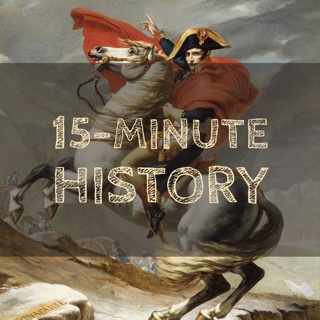
Winston Churchill, Part 2 | Fulfilling his Destiny
In Great Britain calls for negotiations with Hitler were on the rise, with some leaders in the House of Commons outright promoting it. Churchill wouldn’t hear of it. “I have thought carefully in these last days whether it was part of my duty to consider entering into negotiations with That Man,” he said in an informal meeting with his Cabinet. “I am convinced that every man of you would rise up and tear me down from my place if I were for one moment to contemplate parley or surrender. If this long island story of ours is to end at last, let it end only when each of us lies choking in his own blood upon the ground.” Churchill would reiterate such sentiments in one of the most famous speeches in his career, given to the House of Commons after the evacuation of Dunkirk on June 6th. “Even though huge tracts of Europe and many old and famous states have fallen or may fall into the grip of the Gestapo and all the odious apparatus of Nazi rule, we shall not flag or fail. We shall go on to the end, we shall fight in France, we shall fight on the seas and oceans, we shall fight with growing confidence and growing strength in the air. We shall defend our Island, whatever the cost may be. We shall fight on the beaches, we shall fight on the landing grounds, we shall fight in the fields and in the streets. We shall never surrender.” Join us for part two of the life of Winston Churchill, from his taking of the Premiership to the leading of the English people through one of the darkest periods in history.
29 Maalis 202119min

Winston Churchill, Part 2 | A Discussion on Fulfilling his Destiny
Join us as we discuss part two of the life of Winston Churchill, from his taking of the Premiership to the leading of the English people through one of the darkest periods in history.
29 Maalis 202138min

Winston Churchill, Part 1 | Preparing for Destiny
As stated by Andrew Roberts in his book, Churchill: Walking with Destiny, "Before the new MP had even taken his seat, he had fought in four wars, published five books, written 215 newspaper and magazine articles, participated in the greatest cavalry charge in a half a century and made a spectacular escape from prison. ‘At twenty-five, he had fought in more continents than any soldier in his tour save Napoleon,’ a contemporary profile of him was to proclaim, ‘and seen as many campaigns as any living general.’” Join us for part one of two episodes on the life of Winston Churchill, from his childhood to becoming the Prime Minister of Great Britain.
22 Maalis 202115min

Winston Churchill, Part 1 | A Discussion on Preparing for Destiny
Join us for part one of two discussions on the life of Winston Churchill, from his childhood to becoming the Prime Minister of Great Britain.
22 Maalis 202137min

"The Arms of Krupp" | The Dangers of Corporatism
In 1814, as the empire of Napoleon Bonaparte crumbled from the onslaught of the Sixth Coalition powers, the people of Paris felt the ground shudder as cannon shells burst outside the city walls. A year later, the returned emperor's defeat at Waterloo had brought the Germans back to their beloved "City of Lights." In 1870, Paris was besieged by the armies of Kaiser Wilhelm I, and twice during the First World War, it seemed as though the jewel of France might fall into the hands of the great enemy across the Rhine. Each time, the guns of the Prussian armies made their way to the front from the great ironworks of Essen owned by the Krupps, the most powerful family in the German-speaking world after the royal House of Hohenzollern. The Krupp dynasty wielded its power not through the might of armies but the output of its industry. Joined at the hip with the rulers in Berlin, the arms of Krupp built the modern German state and empowered it to liberate a continent from French hegemony and then plunge the world into not one but two world wars. Join us as we teach you about the destructive history of the Krupp family, their empire, and the dangers of corporatism.
15 Maalis 202116min

"The Arms of Krupp" | A Discussion on the Dangers of Corporatism
Join us as we teach you about the destructive history of the Krupp family, their empire, and the dangers of corporatism.
15 Maalis 202136min

The American Civil War, Part 2 | War is Hell
Around him lay the carnage of battle, men killed or nursing wounds. Smoke filled the air and burned the colonel's lungs. His depleted regiment had already repelled three attacks by rebels charging up the hill and was nearing the end of their strength. And yet the grey-coats kept coming. His superior's orders rang in his ears, "You must hold the line." Looking around, he thought to himself, "What more can we do?" Then it came to him, an order not often given in these days of modern war. Standing tall, he gave instructions to his battalion and company commanders, and then shouted a single word to those men still standing—"Bayonets!" Join us as we teach you about the end of the American Civil War, the failings of Reconstruction, and the long-term effects of this conflict on our nation's history.
8 Maalis 202117min

The American Civil War, Part 2 | A Discussion on War is Hell
Join us as we discuss the end of the American Civil War, the failings of Reconstruction, and the long-term effects of this conflict on our nation's history.
8 Maalis 202138min





















